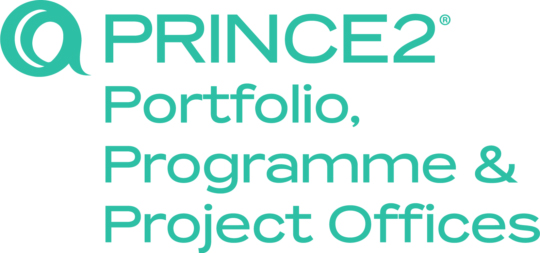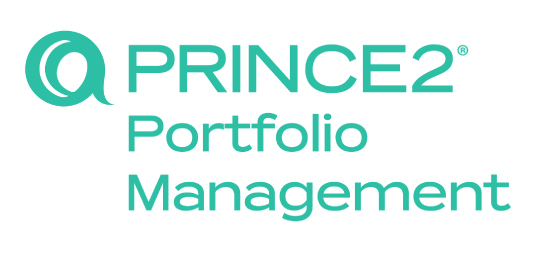We carry out 1-2-1 sessions all the time here at PMO Learning [you can check those out here] with PMO practitioners who are looking to get on in their PMO careers.
The types of things people look for when using a service like this varies – sometimes it’s around improvement of the CV or what steps they should be thinking about to move into different PMO roles. Other sessions are more about the job itself – they need someone to bounce ideas around when it comes to setting up a new PMO or implementing a new service. You’ll be surprised at how just having a sounding board and someone to let you know you are on the right track works wonders.
This kind of service is a self-development activity in itself yet I wanted to share a few insights from a recent PMO practitioner’s experience which really demonstrates how investing in self-development really pays off – in real practical terms.
Introducing Lucy
 Let’s introduce Lucy first (not her real name, although this is the name my mum originally had planned for me!).
Let’s introduce Lucy first (not her real name, although this is the name my mum originally had planned for me!).
Lucy is currently working in a PMO Analyst role within a PMO in the retail industry. The PMO she works in is one which provides support to programmes and projects across the business. Sometimes she’s resourced to larger projects for a period of time before coming back into the PMO to carry out centre-of-excellence type work before another new project needs someone dedicated to support it.
She’s been doing this for the last three years and she wants a change.
PMO Career Crossroads
The questions she had when she first booked the session with us were:
- I’m not sure what to do next – should I stay here and push for a new opportunity or do I need to leave to find something else?
- I’m also not sure about what role I could do elsewhere – how does my experience stack up against the wider employment market.
- I’m worried about looking for a new opportunity elsewhere which is making me hesitate about making a change at all.
Not Sure What to Do!
The questions are normal questions that anyone at this career crossroad would have. So where do we start with finding the answers?
In this article I’ll give you a few of the insights that Lucy and I uncovered. Let’s start with the second question first:
What PMO Role?
 We all know there are plenty of different types of roles out there for PMO. You could choose to stay generalist – like a PMO Analyst. You could opt to go more specialist – like a Risk Specialist. Maybe management is your thing – such as a PMO Manager. Maybe you feel the time is right to become a PMO consultant.
We all know there are plenty of different types of roles out there for PMO. You could choose to stay generalist – like a PMO Analyst. You could opt to go more specialist – like a Risk Specialist. Maybe management is your thing – such as a PMO Manager. Maybe you feel the time is right to become a PMO consultant.
When you consider the different roles that are out there – and then the different skills and experience levels required to perform the role, straightaway you can start to see where self-development is going to figure in your plans.
No matter what you choose to do, there will be some self-development needed to improve your knowledge base first.
When we talk about improving your knowledge base – that’s the things like training courses, webinars, attending conferences and events like PMO Flashmob, reading articles and books.
The best thing you can do when you’re unsure about anything is to learn more about it!
Lucy asked the question:
“I’m also not sure about what role I could do elsewhere – how does my experience stack up against the wider employment market.”
That’s two things.
First she has to do her research. There are plenty of job sites out there that will start to give her a feel for what kind of roles are in demand right now in the maketplace. It’s up to her to start finding the ones that look a good fit to her experience today. She’ll also start getting a sense of how much these roles pay too.
But, and there is always a but, don’t get downhearted if you’re looking at roles advertised and seeing that a lot of them are asking for some different skillsets to the ones you have. That’s the tricky thing about advertisements for PMO related roles, they’re often not very good, not accurate and often written by someone who doesn’t understand the role or is just writing an advertisement with lots of ‘nice-to-haves’ rather than the realities of the day-to-day role.
You’ll only start to understand the realities of job advertisements when you get to the stage of interviews – that’s when the role is really discussed.
At this stage, Lucy is tasked with research first. Starting to understand what PMO roles exist elsewhere. Starting to see how other company’s PMOs are written about and the types of roles they have. Just like Lucy, you’ll start to learn just how many different titles there are for what is essentially the same role. You’ll also start to be able to compare what experience and skillsets you have against what’s being asked for in the advertisements.
Once you do this, once you’ve started to uncover the unknowns, things start to look clearer, a little less confusing and scary.
Stay or Go?
It depends on what Lucy is trying to achieve in her career and that will also depend on many different factors such as remueration levels required; where she lives and wants to work and so on (that’s why a 1-2-1 session works, it focuses on just you!).
One thing that became clear during the session with Lucy is that she was unsure about what’s possible in her career. What choices does she have?
Her understanding of wider best practice in PMO didn’t really exist – she knew her own company’s PMO inside and out, but wasn’t aware of the different ways organisations might configure their PMOs or how some PMOs might include portfolio management – or indeed that Enterprise level PMOs exist. This of course has a knock on effect to how Lucy would start the understand what the different types of roles were.
This lack of understanding was doing two things to Lucy:
- If you don’t know what’s possible, how can you make an informed decision about where you could be heading.
- If you’re unaware of wider PMO good practice which comes from external sources, how can you generate new ideas and ways forward for your current organisation’s PMO.
This was the ah-ha moment for Lucy.
She realised that actually there’s unfinished business in her current role. There had been discussions recently in the PMO team about problems with visibility of projects being run in the business and portfolio management was being mentioned by senior execs as a potential approach to resolving some of these problems. She wasn’t sure what portfolio management really meant – how the two – visibility and portfolio management – were related. It was a case of, ‘you don’t know what you don’t know’.
We talked about the need to gain knowledge first. Something like P3O Foundation is a quick way to get that wider picture view of what’s possible with the different configurations of PMO – it covers project, programme and portfolio levels – this would be perfect for Lucy to get the knowledge quickly. The course always gives people a ton of ideas on how to make big and small changes to their PMO operations too.
Once she understood that something like P3O Foundation is not just about a tick-in-the-box or something to stick on the CV, that actually this could give her the knowledge and confidence to get involved with the changes that were happening back in the business with their PMO.
We also tied it back to the previous part of the conversation – about roles in the wider marketplace. Perhaps if she stayed at her current organisation, gained experience in working at a portfolio level for a while, this would put her in a better place for the future when it came to moving on.
She had a plan of action, a place to start to get on the right track.
Hesitate About Making a Change
“I’m worried about looking for a new opportunity elsewhere which is making me hesitate about making a change at all.”
Well, by the end of the session this wasn’t a question anymore. It might be a question for the future for Lucy but somehow I doubt it.
By the time she’s ready to move on I suspect she’ll be doing good things with portfolio management in the PMO. As long as she carries on listening and understanding what the business needs from the PMO – and acting on that, by continuing to learn on the job and take on board the ever-emerging good PMO practices from external sources.
Self-improvement is not something we do when we just need to bolster the CV – self-improvement is something which is crucial if you’re working in a project management environment where change is the norm. If everything around you is changing – and in Lucy’s PMO world, change was coming down the line in the form of portfolio management practices – it really is your responsibility to ensure you’re ready and skilled for those changes.
In this Article
In this article we mention two things you could look into further. The first is the [Coaching and Mentoring Sessions] from PMO Learning – take a look at who’s available and what they can help you with.
The second thing we mentioned was [P3O® Foundation]. It’s currently the most popular certification course you can do in the UK and takes three days. Our course is pretty special, it’s run by the author of P3O® herself, Eileen Roden.
The P3O® courses on this page are offered by PMO Learning. P3O® is a [registered] trade mark of AXELOS Limited. P3O® is a registered trade mark of AXELOS Limited, used under permission of AXELOS Limited. The Swirl logo™ is a trade mark of AXELOS Limited, used under permission of AXELOS Limited. All rights reserved.
Enjoying Our Blog?
Sign up and receive all our articles (we’ll send you an update once a week!) plus special offers and events:







